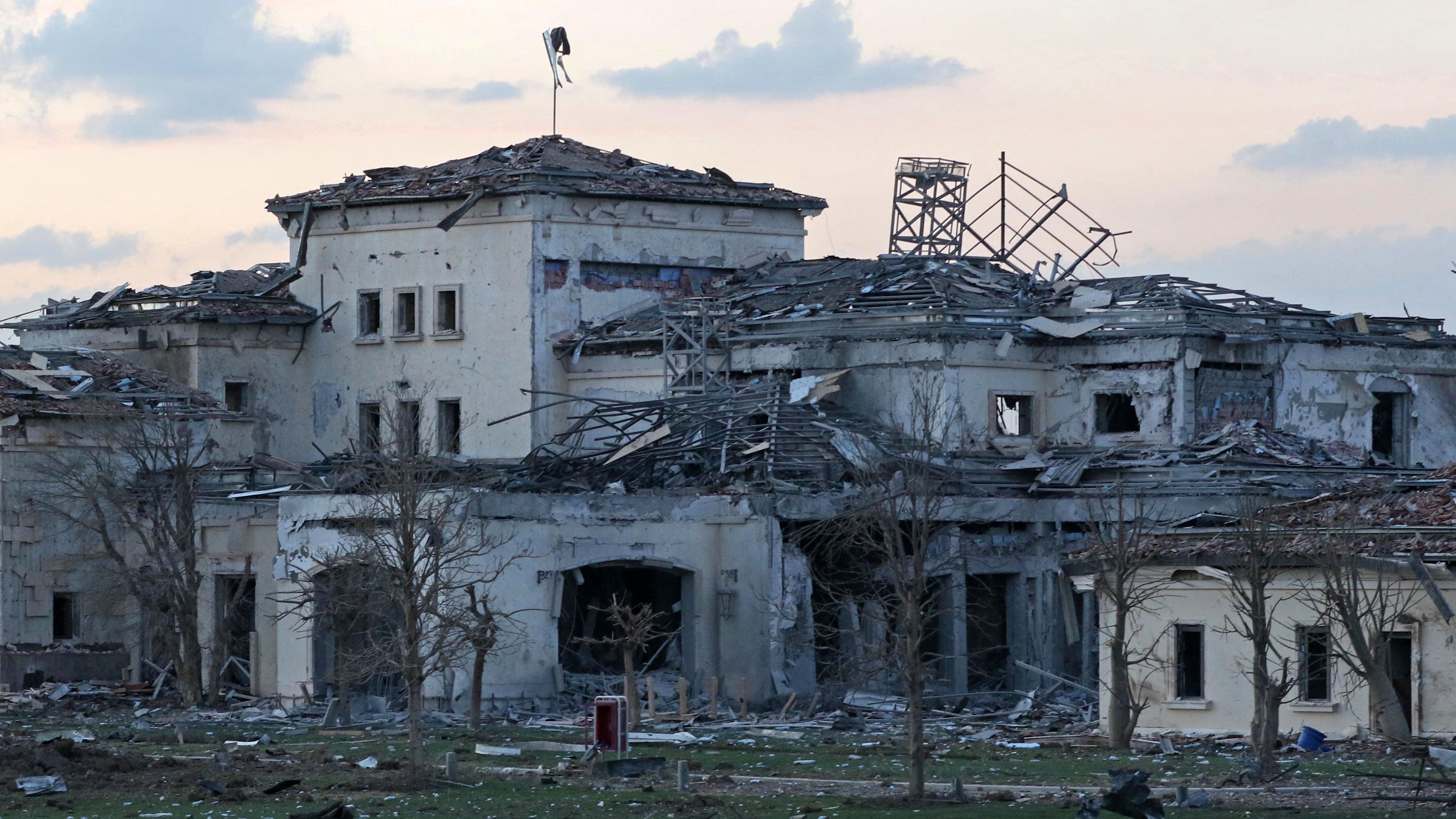Why Iran launched missile attack on Iraq
Strike near US consulate risks ‘sabotaging’ nuclear deal negotiations

A free daily email with the biggest news stories of the day – and the best features from TheWeek.com
You are now subscribed
Your newsletter sign-up was successful
Iran has claimed responsibility for a missile attack that struck near a new US consulate complex in the northern Iraqi city of Erbil over the weekend.
The attack on Sunday “injured at least two people, blasted holes in nearby homes, and sent US forces running for cover”, The Wall Street Journal (WSJ) reported. The Islamic Revolutionary Guard Corps said that the target was an Israeli “strategic centre of conspiracy” in Erbil and that the attack was a response to an Israeli strike in Syria last week that killed two of its commanders.
The assault in Iraq “marked a significant escalation between the US and Iran” that threatens ongoing talks in Vienna aimed at reviving the Iran Nuclear Deal, said Associated Press (AP). “Hostility between the long-time foes has often played out in Iraq, whose government is allied with both countries,” the news agency added.
The Week
Escape your echo chamber. Get the facts behind the news, plus analysis from multiple perspectives.

Sign up for The Week's Free Newsletters
From our morning news briefing to a weekly Good News Newsletter, get the best of The Week delivered directly to your inbox.
From our morning news briefing to a weekly Good News Newsletter, get the best of The Week delivered directly to your inbox.
‘Strategic centres’
The attack by Iran’s top paramilitary force has drawn “harsh condemnation from the Iraqi government, which called it a ‘violation of international law and norms’”, said AP. The US State Department described the strike as an “outrageous violation of Iraq’s sovereignty”.
The missile was launched “several days after Iran said it would retaliate for the Israeli strike near the Syrian capital, Damascus”, the news agency continued.
Although Iran claimed its strike was intended to target Israeli operations in Iraq, the bombing represents “a rare publicly declared assault by Tehran against allies of Washington”, said Reuters. The “last time Iran fired missiles directly at US facilities was when it struck the Ain Al Asad air base in western Iraq in January 2020”, in retaliation for the US killing of Iranian commander Qassem Soleimani”.
Iraq’s Foreign Ministry summoned the Iranian ambassador to Baghdad on Sunday to protest at the unprovoked strike on its territory. Israel’s military said it did not comment on reports in the foreign press, and the office of the country’s prime minister also declined to comment.
A free daily email with the biggest news stories of the day – and the best features from TheWeek.com
Escalation of force
US troops “stationed in a section of the Erbil International Airport complex” have previously “come under fire from rocket and drone attacks that Washington blames on Iran-aligned militia groups”, Reuters said. But “no such attacks have occurred in recent months”.
Although the latest missile strike was allegedly aimed at “sites used by Israel”, social media posts showed “missiles hitting the ground and large explosions” near the new US consulate in the northern Iraqi city, The Telegraph reported.
“Local television channel Kurdistan24, whose studios are not far from the US consulate, posted images on social networks of its damaged offices, with collapsed sections of false ceiling and broken glass,” the paper added.
The US, Iraq “and other nations condemned the missile strike as a destabilising act, as the Israeli military stepped up its defences and US officials considered how to respond”, said the WSJ.
The assault is “likely to create more regional resistance to American efforts to strike a new nuclear containment deal with Iran”, the paper continued. The US and Iran “have paused negotiations” amid the diplomatic fallout.
Ambassador Matthew Tueller, America’s top diplomat in Iraq, said that the “Iranian regime elements” behind the attack “must be held accountable for this flagrant violation of Iraqi sovereignty”.
‘Variety of hurdles’
According to The Times, the “missile barrage” suggests that “Tehran has little hope now of negotiating a nuclear deal to lift Western sanctions”.
The powerful Iranian Revolutionary Guards “are determined, if possible, to sabotage any rapprochement with the West” if “fraught attempts” to revive the agreement fail, the paper continued.
Negotiations to breathe life into the Barack Obama-era deal “have barely been worth the weeks and months of intensive negotiations in Vienna”.
“Key elements in Iran’s power structure do not want it” and “those who hoped it would at last bring Iran in from the cold seem increasingly deluded”.
World powers including the UK, France, China, Germany and Russia are involved in the nuclear talks. But the negotiations have already hit a “pause” over “Russian demands about sanctions targeting Moscow for its war on Ukraine”, said AP.
The talks have also “drawn criticism from Israeli and Persian Gulf leaders, who worry that a new deal will allow Tehran to continue to arm allies across the region and carry out its own missile strikes with impunity”, the WSJ reported.
The growing list of “hurdles” was “damping hopes that negotiators would be able to announce a revived deal soon”, the paper said.
France has warned that the missile strike on Iraq will almost certainly “put in danger the efforts to allow a return” to the agreement.
The French Foreign Ministry said that there was “an absolute urgency to conclude the negotiations, which are still open after almost a year, and to cease such irresponsible and dangerous activities”.